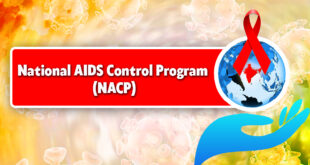- The links between childbirth and mental disorders have been described for hundreds of years. Mental illness after childbirth isn’t merely of historical interest.
- As illustrated by the findings of the U.K. Confidential Enquiries into Maternal Deaths, suicide is a leading cause of maternal death following childbirth.
- In India itself, the prevalence of postpartum depression was around 22% in 2017. If a person develops psychotic depression or if the depression is severe, there is a high risk of dying by suicide. In such situations, healthcare workers advise more aggressive interventions.
- Traditional classification systems don’t include separate categories for episodes of mental illnesses that occur in the perinatal period, leading to confusion in clinical practice as well as in research.
- The ubiquitous use of the term ‘postpartum depression’ also erroneously refers to all forms of psychological distress following pregnancy – from mild mood changes to more severe psychotic conditions.
- Postpartum depression is a significant form of depression that can begin after childbirth, with symptoms that vary from person to person, and has important differences from ‘baby blues’.
- In clinical practice, this period can last anywhere between four to six weeks following delivery, but sometimes even up to a year.
- Women can be affected by a range of mental health problems in pregnancy and the postpartum period, including depression, anxiety, bipolar disorder, psychosis, and personality and eating disorders.
- Despite this, perinatal psychiatric disorders have not received the attention that they deserve.
- Postpartum depression is a real medical illness that can affect any mother regardless of age, income or cultural and/or educational background. Women are not to be faulted for having postpartum depression.
- A prior history of mood or anxiety disorders, stressful life events, poor social support, and domestic violence are established risk factors for depression in the postpartum period.
- Additional risk factors include poor social support, adverse life events, domestic violence, a history of prior psychiatric illness, unplanned or unwanted pregnancy, and present/past pregnancy complications.
Clinical presentation
- The clinical presentation doesn’t vary much between depression in the postpartum period and depression that occurs at other times.
- The core symptoms of depression include low mood, loss of pleasure in activities, and easy fatigability.
- However, fatigue, loss of libido, appetite and weight change, and sleep disturbances are more common in the postpartum period. Thoughts of self-harm are also common in postpartum depression.
- Women who present with psychiatric symptoms in the postpartum period are at higher risk of being diagnosed with a severe mental illness called bipolar disorder.
- In a 2012 Danish study, around 14% of women with first-time psychiatric symptoms within a month of childbirth were later diagnosed with bipolar disorder in a follow-up timeframe of 15 years.
- Another study, published in 2010, found that more than half the participants with bipolar disorder with postpartum onset were initially misdiagnosed with unipolar depression.
- So it is prudent to keep an eye out for underlying bipolar diathesis in women presenting with postpartum depression.
Screening and solutions
- It is vital to sensitise obstetricians to screen women for postpartum depression. Awareness about this entity is abysmally low, contributing to its morbidity, loss of productivity, and in some cases loss of life.
- The Whooley questions are recommended in the U.K. to screen women for postpartum depression. Globally, the Edinburgh Postnatal Depression Scale, a self-reported measure, is also used to assess postpartum depression.
- The condition lasts between three and six months, and it is essential that healthcare professionals pay attention to a woman’s mental health in addition to her physical well-being.
- The affliction responds to the same treatments as depression at other times. Psychological interventions have been shown to be effective for mild postpartum depression in clinical trials.
- Given that many people don’t wish to take medicines while breastfeeding, peer-support, counselling, cognitive behavioural therapy (CBT), and interpersonal therapy become important interventions.
- CBT is a talking therapy that helps people by changing the way they think and behave. It is based on the premise that thoughts, feelings, physical sensations, and actions are interconnected, and that negative thoughts and feelings can trap us in a vicious cycle.
- CBT attempts to restructure faulty patterns of thinking into more positive and logical ones.
- Interventions are also directed at the mother-baby dyad, especially if there has been no response to treatment.
- Among those with moderate to severe depression, medication will be required. The use of safe, effective, evidenced-based medications for depression in pregnancy has increased considerably in recent decades, with rates varying from 3% to 13%.
- Innovative and novel drug treatments are increasingly available for women with postpartum depression.
- One such involves a 60-hour hormonal infusion (brexanolone), which has shown promise in an early-stage trial. Before it can be adopted more widely, the results will need to be replicated in larger trials.
- Decisions regarding medication for breastfeeding women must be made only after a risk-benefit analysis. Interventions such as special diets, exercise, yoga, and the use of oestrogens and progestins have limited evidence vis-à-vis postpartum depression as of today.
- In severe depression characterised by suicidal ideas or when the person has thoughts of self-harm or of harming the baby, doctors perform electroconvulsive therapy.
- Here, a small electrical charge is applied to the person’s temples while the person is under short anaesthesia. This results in a controlled seizure that helps to offset brain changes caused by depression.
- It is one of the most effective interventions in the history of clinical medicine. Unfortunately, it has been portrayed negatively in films (notably ‘One Flew Over the Cuckoo’s Nest’).
- A range of safe, effective, and evidence-based treatment options exist for psychiatric disorders with onset in the postpartum period.
- Postpartum depression is a common but serious disorder that is amenable to bio-psycho-social interventions. Right treatment at the right time in fact leads to rapid recovery and a better quality of life.
- Stigma, lack of awareness, and misconceptions shouldn’t hinder a person from seeking help, particularly in this sensitive time.
SOURCE: THE HINDU, THE ECONOMIC TIMES, PIB
 Chinmaya IAS Academy – Current Affairs Chinmaya IAS Academy – Current Affairs
Chinmaya IAS Academy – Current Affairs Chinmaya IAS Academy – Current Affairs



